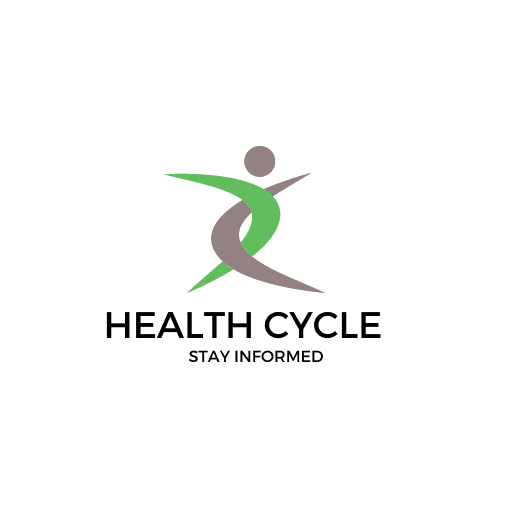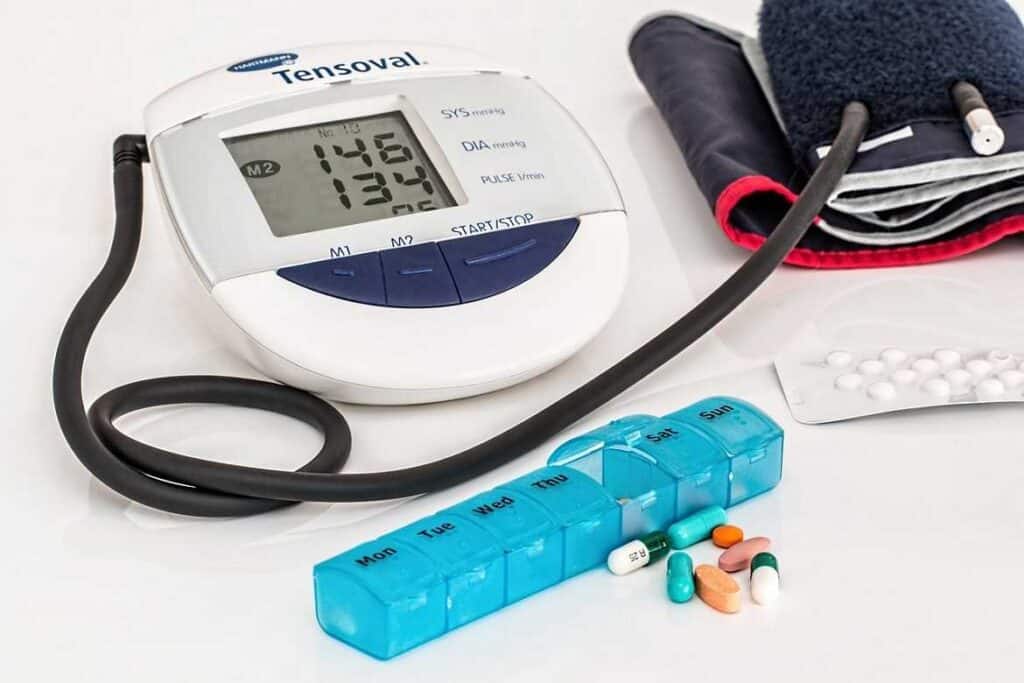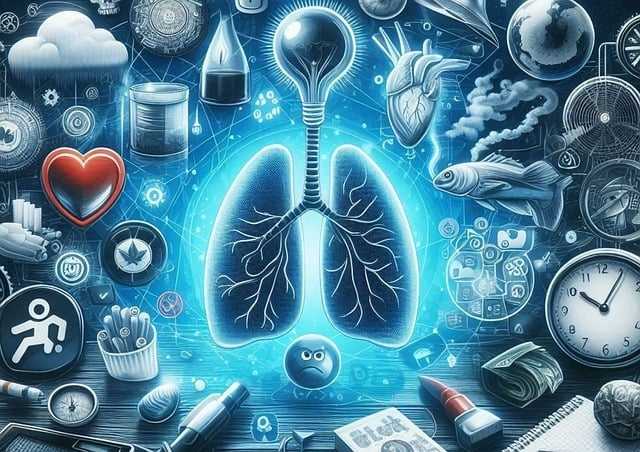Catching Early Signs of Heart Disease Is Crucial Because One of the main death culprits on a global scale is heart disease. This disease has no age bar and is mostly invisible to the fact that many of the symptoms are hard to detect. Knowing the early signs of heart disease is crucial because earlier the detection lower are the chances of severe heart problems in future. In this blog, we are going to discuss the Early Signs of Heart Disease, so lay back and read in an easily understandable way.
Understanding Early Signs of Heart Disease
So, before I take you through the warning signs and symptoms… what is heart disease?
Heart Disease, or Cardiovascular Disease (CVD), is the general name for a variety of conditions that affect the heart and blood vessels. Coronary artery disease (CAD) is the most common type, which happens when blood vessels in your heart become narrow and blocked with plaque. Some serious complications of this is heart attack and so on.
Arrhythmias (irregular heartbeats), heart valve disease and heart failure are other most common kinds of heart diseases. Recognizing Early Signs of Heart Disease can prevent the progression of disease.
Why is Detection of Early Signs of Heart Disease Important?
Detection of Early Signs of Heart Disease can save you from dying. The quicker you detect signs, the quicker you can reach out for help and make changes that could save your life by preventing a heart attack or stroke. The problem is that so many people believe nothing is seriously wrong with them and they ignore Early Signs of Heart Disease because those initial signs are minor.
Common Factors leading to early signs of heart disease
So, let’s go in deeper to the common Early Signs of Heart Disease. If you experience any of the symptoms mentioned earlier, it is important to see a doctor.
-
Heartburn or Chest Pain (Angina)
Angina or chest pain might be the most classic sign of heart disease. It is a chest pain that happens when some of the heart does not get enough oxygen-rich blood. May be experienced as pressure, squeezing, fullness in the chest.
Chest pain is the hallmark of a heart attack, but these can also be Early Signs of Heart Disease. Chest pain is a warning sign that should never be ignored, especially if you notice or feel it often during exercise and stress.
Key Takeaway: Mild chest pain should not be ignored. That might be your heart whispering — asking to be unburdened.
-
Shortness of Breath
It could also mean there are less serious issues but shortness of breath, especially when you are not physically active, should never be just shrugged off. If you get breathless (dyspnea), even if it is during every run-of-the-mill task walking up the steps, this could be an Early Signs of Heart Disease.
When it doesn’t work effectively, blood cannot be pumped to all parts of the body and fluid backs up in the lungs. When this happens, you can feel more winded than usual during these activities.
Key Takeaway: None of these results suggest you have anything to worry about, but if you now feel surprisingly breathless (especially when doing something very light, or at rest) then it is time to go see a doctor.
-
Fatigue and Weakness
It might not sound very serious, but extreme fatigue or weakness (perhaps just in the arms or legs) even after doing something pretty simple could actually a sign of heart disease. When you tire, your heart isn’t pumping enough blood to carry out what it naturally wants, and that’s when fatigue gets the best of you.
People tend to brush off fatigue as stress or lack of sleep, but if you find yourself frequently feeling very tired, there is a chance that it may be attributed to your heart.
Key Takeaway: If you always feel exhausted and tired, that is not something to ignore. It may mean your heart is in trouble.
-
Dizziness or Lightheadedness
Have you ever experienced unexplainable dizziness or lightheadedness? You can experience this if your heart is not pumping the needed amount of blood to your brain. Light headedness: Particularly when arising from a seated or lying down position or with exertion, dizziness can be indicative of heart disease as well as abnormal heart rhythms (arrhythmias).
In more severe cases, patients may even faint (syncope) as a result of an acute drop in blood pressure. If you often have episodes of feeling faint or lightheaded, this is something to consult with your doctor about immediately.
Key Takeaway: Keep in mind: Lightheadedness and dizziness are Early Signs of Heart Disease. Symptoms Could Indicate Heart Trouble
-
Edema (This means swelling in your legs, ankles or feet)
One of the earliest indications of heart disease is fluid retention, which does change how you feel. If your heart is failing to pump effectively, blood can flow backwards into your lower legs, leading to leg, ankle or foot swelling. It would be followed by edema and sometimes, heaviness or discomfort in these areas.
We see more marked swelling is towards the end of the day or after standing for long periods. If you also find that your heart is not able to pump blood adequately, this can be a symptom of heart failure.
Key Takeaway: If your lower body is persistently puffy, it could be because your heart can no longer keep up.
-
Fast or unexpected heart beats (palpitations)
An arrhythmia is a condition in which the heart beats irregularly for up to 30 seconds, changes its rhythm pattern or rate of beating.
Though aberrations in heart rhythm can happen after having any exercise routine or a heavy amount of caffeine, it is a warning whenever frequent occurrences that tend to be an indication of more profound disturbances with the electrical system of the heart.
Key Takeaway: Listening to your heart beat, even if it does not have words. If these palpitations are frequent, than this is a cause to consult your doctor.
-
Neck, Jaw or Back pain
Chest pain is not the only symptom of heart disease. Others may feel discomfort or pain in one or both arms, the back, neck, jaw or stomach. An example, is that women are notoriously more likely to present with these atypical symptoms.
As CP, this kind of pain is also occurs on a sporadic basis (not directly related to physical stress). This pain is very often mistaken for muscle ache or something insignificant, but if repeated, it may appear that we are dealing here not with the consequences of increased training load but with a heart attack.
Key Takeaway: Unexplained pain detectable in your upper body, especially in the jaw or back, may indicate heart complications.
-
Nausea and Indigestion
Nausea and indigestion may seem like simple symptoms, but they can also be a Early Signs of Heart Disease. If you regularly feel nauseous, full of gas, or get pain in your stomach it may be because your heart is not doing well.
If those symptoms happen in concert with other symptoms, such as chest pains or shortness of breath.
Key Takeaway: Do not ignore frequent nausea, indigestion, abdominal pain, or coughing if you are experiencing other symptoms of heart failure.
Who is More Likely to Develop Heart Disease
Some things make you more likely to get heart disease. Knowing them can help you take a more proactive approach to heart health.
- Age: The risk of Heart Disease increases with age.
- Family history: If heart disease is in your family, you are at a higher risk.
- Smoking: These are the slimmest of slim chances as tobacco use is a chief hazard.
- High blood pressure: Hypertension damages the arteries increasing the chance of heart disease.
- Elevated cholesterol: Being the bad kind (LDL), it can block your arteries.
- Obesity: Being overweight burdens your heart and is a leading risk for CVD.
- People with Diabetes are More Likely Suffer from Heart Disease
- It also helps in pumping exercise daily pollen that includes heart problems.
How To Prevent Heart Diseases?
So, if you have even just the very Early Signs of Heart Disease, all is not lost.
- Get daily exercise: Try to be active 30 minutes most days of the week.
- Maintain a heart-healthy diet: eat whole grains, lean proteins, fruits and vegetables, and limit the intake of unhealthy fats.
- Stopping smoking: it’s never too late to stop and make your heart healthier.
- Check your blood pressure and cholesterol levels: good numbers mean less risk.
- Control your weight: Even a small amount of weight loss can make all the difference to your heart health.
- Maintain stress: You can follow rest strategies such as deep breathing and meditation.
- Regular check-ups: Catching Early Signs of Heart Disease on makes them easier to treat so don’t blow off your doctor appointments.
When to See a Doctor ?
when ? Suppose those Early Signs of Heart Disease previously are happening to you. Severe or not, there may be an underlying issue that is being conveyed through your mild symptoms.
Because remember, heart disease is easier to treat when diagnosed earlier. Your doctor will be able to test you, offer treatments and advice for how you can take better care of your heart.
Conclusion: Take Charge of Your Heart Health
Identifying the early signs of heart disease can have a massive impact on your health. Chest pain, shortness of breath, fatigue, dizziness, swelling and palpitations are all warning signs that should never be ignored.
Listen to your body and live a healthy life instead of the one that makes your heart die. If something seems wrong, do not hesitate — discuss it with your physician.
Take care of yourself, and continue to be heart healthy!
This blog post is intended to provide information but does not substitute for medical advice. If you need help, get it .



